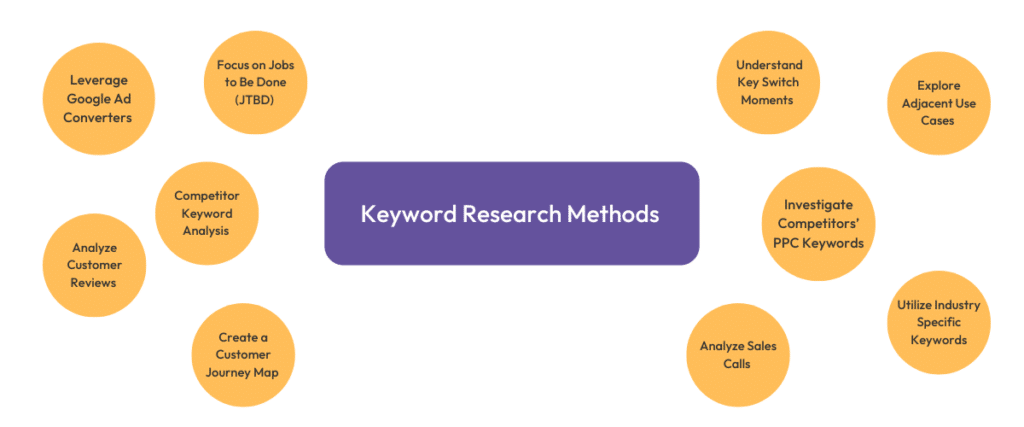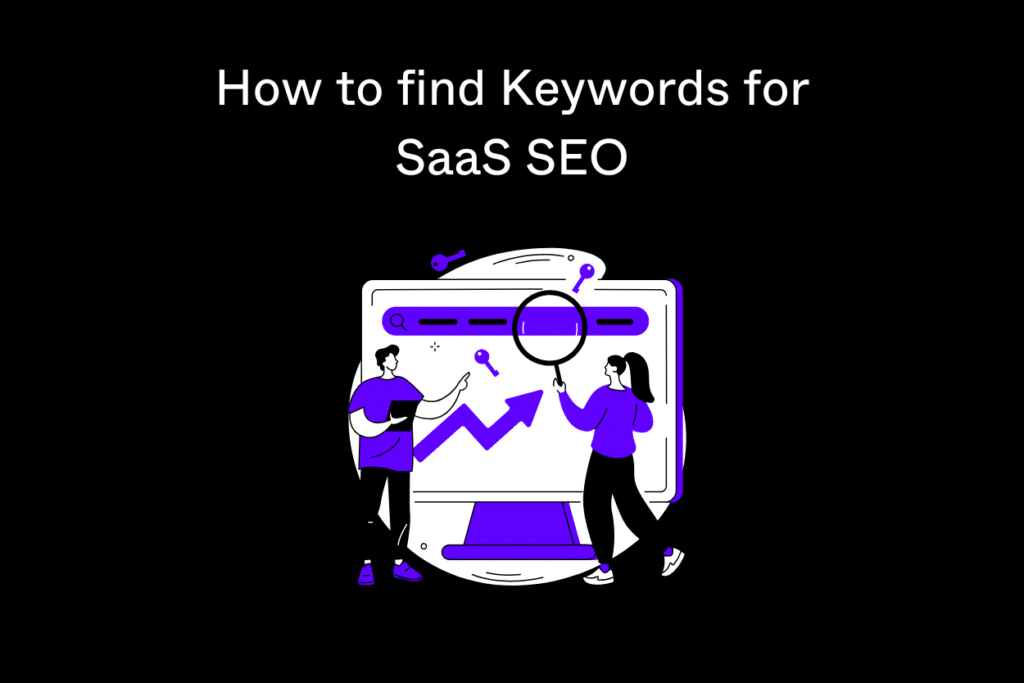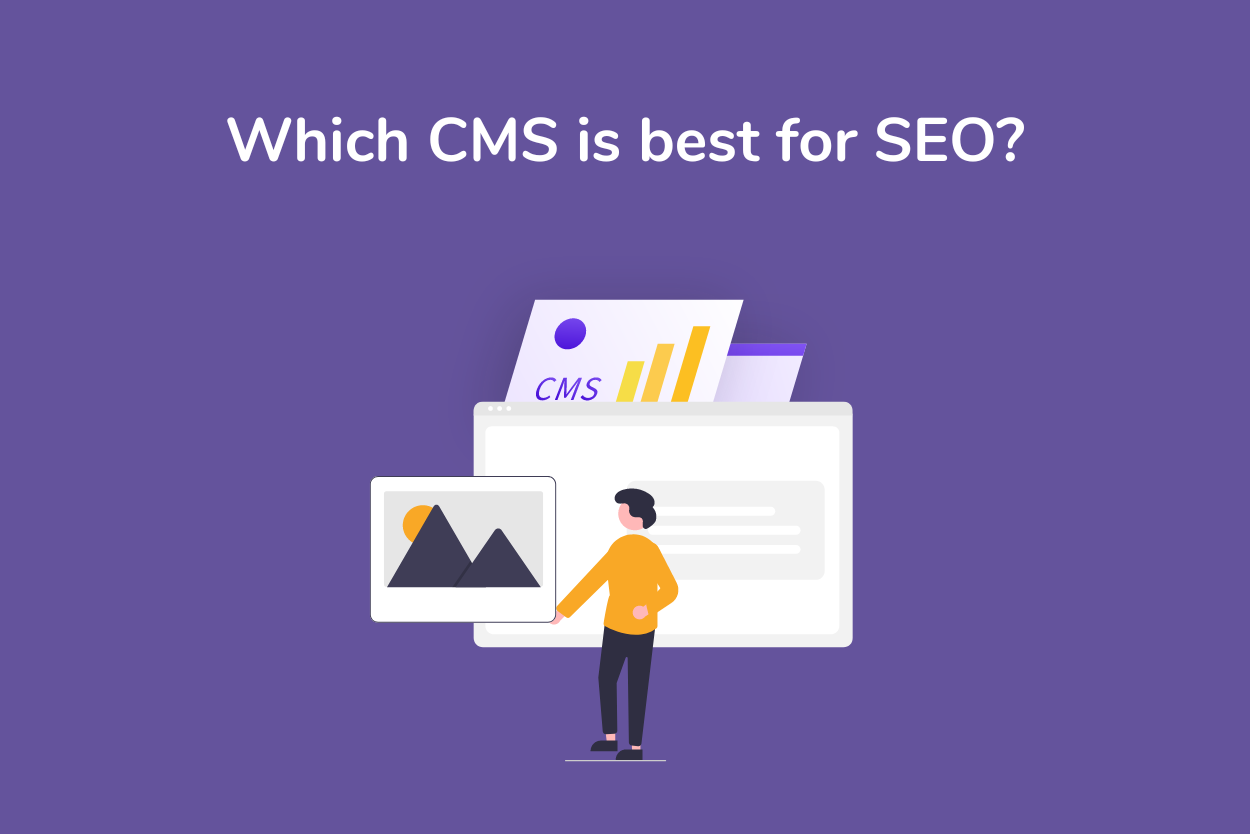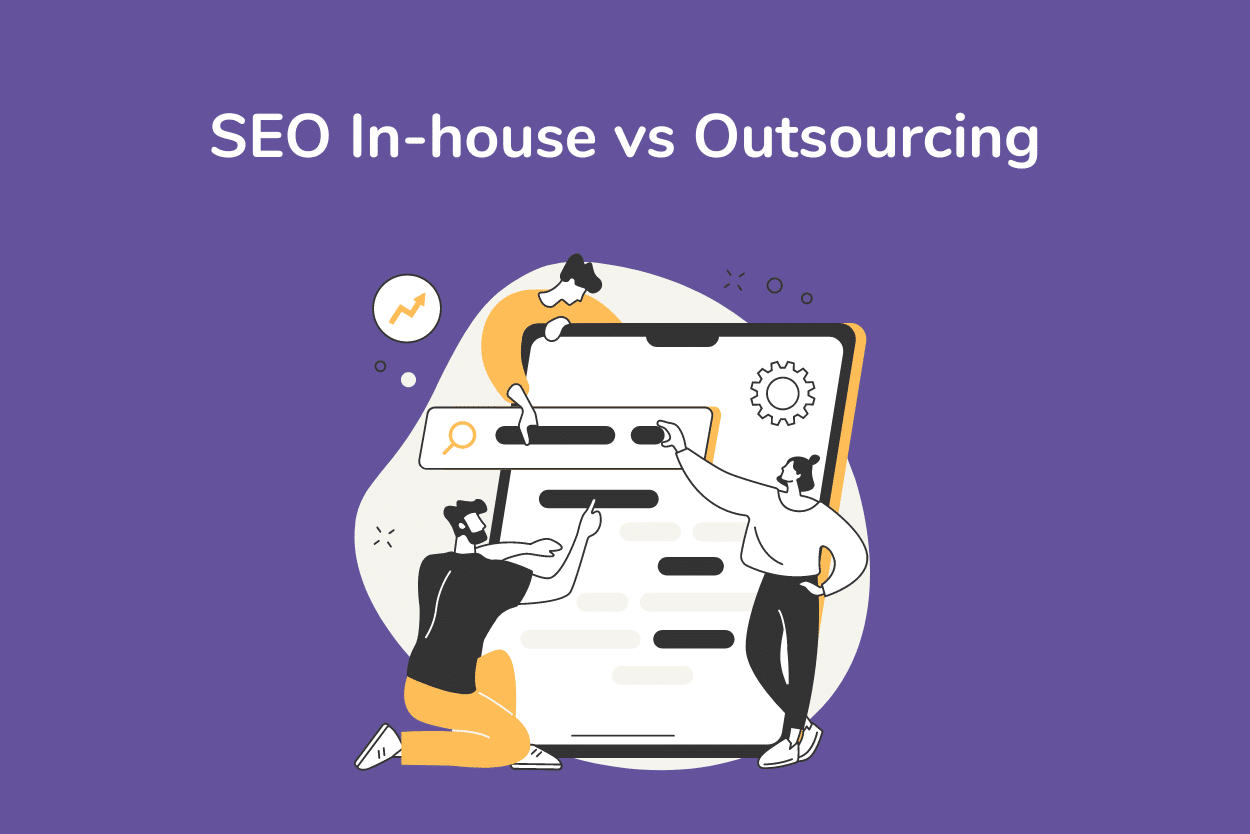
Effective SEO in the competitive world of SaaS can help drive organic traffic, convert leads, but it all starts with working out the right keywords. This requires understanding user intent, competitors’ analysis, and a handful of tools and techniques.
Around 70% of marketers believe that organic SEO is more effective for generating sales than PPC ads. This blog shows how to conduct keyword research in SaaS and optimize your SEO strategy.
What is SaaS Keyword Research?
SaaS keyword research is the process of identifying and selecting keywords that potential customers use to search for SaaS solutions. This comes with the understanding of who the target audience is, their needs, and the pain points—how it searches for a solution to those pain points online. Effective keyword research will ensure your content strategy aligns with search intent so that it reaches the right audience for your SaaS product.
Why Is SEO Important for SaaS Companies?
SEO for SaaS companies is very important since it accommodates organic traffic. Usually, this is very viable and cost-effective compared to paid advertising. SEO helps in branding, trying to increase the user experience, and increasing conversions. Due to the fact that most SaaS products have a long sales cycle, strong SEO presence keeps the brand top of mind along all of the customer journeys.
Understanding the SaaS Market and Audience
Importance of Knowing Your Target Audience in the SaaS Industry
Knowing your target audience in the SaaS industry is very important because it affects product development, marketing strategies, and customer retention. When you know your audience on a deeper level, you will be able to develop messaging that really resonates with potential customers and actually says what their pain points are.
Identifying Buyer Personas and Their Specific Needs
Detailed buyer personas will further Help you not only in segmenting your audience but also give them roles, challenges, and goals. Personas identification allows giving different names to various entities—decision-makers in the case of B2B or end-users, in-case of B2C scenarios—personalized attention in terms of content and solutions.
Analyzing Competitors to Understand Their Keyword Strategies
Knowing the competitive landscape inside out by doing a competitor analysis will allow one to understand their keyword strategies, hence identifying gaps and opportunities that exist within the market. This will help in refining your keyword strategy: zeroing in on those areas where you outclass rivals or they have overlooked certain potential keywords themselves.
The Difference Between B2B and B2C SaaS Keyword Strategies
This is necessarily so, as B2B and B2C SaaS companies require different keyword strategies because of the nature of their audiences. Otherwise, the bulk comprises long-tail keywords representative in relation to particular business needs and decision-making processes for B2B SaaS keyword strategies, while B2C strategies might target broader, high-volume keywords appealing to individual consumers. Knowing these gives you a clear understanding that your search engine optimization efforts should be focused on if you are to conform with the purchasing behavior of your target market.
How to Find Keywords for SaaS SEO

1. Leverage Google Ad Converters
Think of the ways you can analyze existing Google Ads campaigns to pick out high-converting keywords. These are already proven keywords for driving conversions and further add value to your organic SEO.
2. Analyze Customer Reviews
Customer reviews are like a gold mine of keywords. Look for repeated phases and terms from customers illuminating pain points and benefits that your product brings to the table.
3. Focus on Jobs to Be Done (JTBD)
The framework “Jobs to Be Done” means understanding those tasks users would want to accomplish with your SaaS product. Once you identify these jobs, related keywords can be targeted to user intent.
4. Create a Customer Journey Map
Customer Journey Map should display the customer journey—from awareness to decision making—and present relevant keywords at each of these stages. For example, users in the awareness stage may make searches that are largely broad and informational, whereas those closer to the point of sale might use very specific solution-oriented queries.
5. Competitor Keyword Analysis
You will be able to find the keywords competitors are ranking for with tools such as Ahrefs and SEMrush, pointing out potential gaps in your strategy while giving chances to target the very keywords on which your rival is not so strong.
6. Analyze Sales Calls
The sales calls represent a firsthand channel to get insight into the language of your customers and their concerns. You will be listening to these calls in order to pick out the recurring terms and questions that could turn into keywords for your content strategy.
7. Investigate Competitors’ PPC Keywords
Using tools like Spyfu, find the PPC keywords that some of your competitors are bidding on. Knowing this information may give you sense into profitable keywords you would like to target organically.
8. Understand Key Switch Moments
Identify keywords related to the moments when users switch from another solution—be it a manual process or another SaaS product—to your product. This might include keywords like “alternatives to X” or “replace Y with Z.”
9. Explore Adjacent Use Cases
This is what goes beyond your primary use case when thinking about adjacent industries or other applications that, if your product were to be used in, would open up other opportunities for it. Suppose the theme of your SaaS is project management; you may get opportunities in related fields like event planning or software development.
10. Utilize Industry-Specific Keywords
If your SaaS Company caters to any specific industry, for instance, healthcare, finance, or education, not forgetting related key terms that express such should also be a basis for targeting. Such niche terms might help together with ranking the pages higher in specialized searches, therefore driving a more relevant audience.
What is the Purpose of SaaS Keyword Research?
The very essence of SaaS keyword research is to know the terms and phrases prospects use when they go online for any SaaS product or solution they are looking for. By uncovering such keywords, one can come up with content based on user intent, enhancing ranking in SERP and thus result in more relevant organic traffic flowing towards the website.
This way, it improves visibility, generates qualified leads, and finally boosts conversions; hence, it is a critical component of the SaaS company’s digital marketing strategy.
SaaS Keyword Research Process
There are many steps in the process for conducting keyword research for SaaS.
- Identify Your Target Audience: Know who your customers are and what problems they try to resolve.
- Brainstorm Keywords: Come up with a list of possible keywords that your audience would use.
- Use Keyword Research Tools: Utilize tools like Ahrefs, SEMrush, or Google Keyword Planner to expand your list and gather data on search volume, competition, and keyword difficulty.
- Analyze Competitors: Study what keywords competitors are ranking for and identify gaps in your content strategy.
- Prioritize Keywords: Focus on keywords that have high search volume but low competition, aligning with your product’s value proposition.
Understanding the Investment in SEO for SaaS Businesses
This makes the SEO investment in SaaS businesses strategic to growth over time. Unlike paid advertising, which gives instant results that are temporary, SEO generates an organic flow of traffic that is sustainable in the long run.
It is an investment in resources that are necessary for execution, including content creation, technical optimization, and link-building. Though relatively high in cost at the preliminary level, the residual returns in the form of enhanced search rankings, visibility of a brand, and a steady flow of qualified leads make SEO a critical component of an effective marketing strategy for a SaaS company.
Top 5 Keyword Research Tool for SaaS
1. Ahrefs

Ahrefs provides detailed keyword analysis, competition insight at play, and backlink tracking tools that are powerful enough to run comprehensive SEO strategies.
2. SEMrush

Every single detailed data on keywords is provided by SEMrush tool and guides one in analyzing strategies for competitors’ keywords, hence remaining in the first place on the market.
3. Google Keyword Planner

A free tool offering keyword ideas and search volume data directly from Google.
4. Moz Keyword Explorer

MOZ models keyword difficulty and organic CTR, and gives back a prioritized keyword list.
5. Ubersuggest

Ubersuggest is particularly user-friendly on the keyword part, search volume, and competitive analysis, appealing to all levels of marketers.
Rank #1 in SERP Through Keyword Research
Researching high-value keywords targeted at the intent of the audience is considered the most strategic means of achieving a #1 rank in SERPs. First off, develop a keen eye for very high-value keywords that match with the purpose of your target audience.
Mixing both short-tail and long-tail keywords helps to cater to different intents in searches. Make sure that your content is optimized around these keywords by providing relevant knowledge that adds value to information. Regularly check competitors for possible gaps and opportunities, while updating the content to keep it fresh and relevant for existing search trends.
Finally, setting a priority on technical SEO and backlinks can help you improve the authority of your site. The way to sustain and achieve top rankings amid continuously evolving search algorithms is through continued effort and flexibility.
Conclusion
In other words, impeccable keyword research is the cornerstone of a successful SaaS SEO strategy. By understanding your audience, leveraging multiple ways to find well-valued keywords, and keeping on optimizing content, you will have laid grounds for driving organic traffic towards your site and ranked in search.
Through organic growth, investing in SEO leads to unmatched express growth and visibility in a competitive market, proving that it pays off for a SaaS business in the long term. Your SaaS will drive more conversions by ranking on the top and increasing qualified leads through finding the right approach to keyword research.
Resource:



